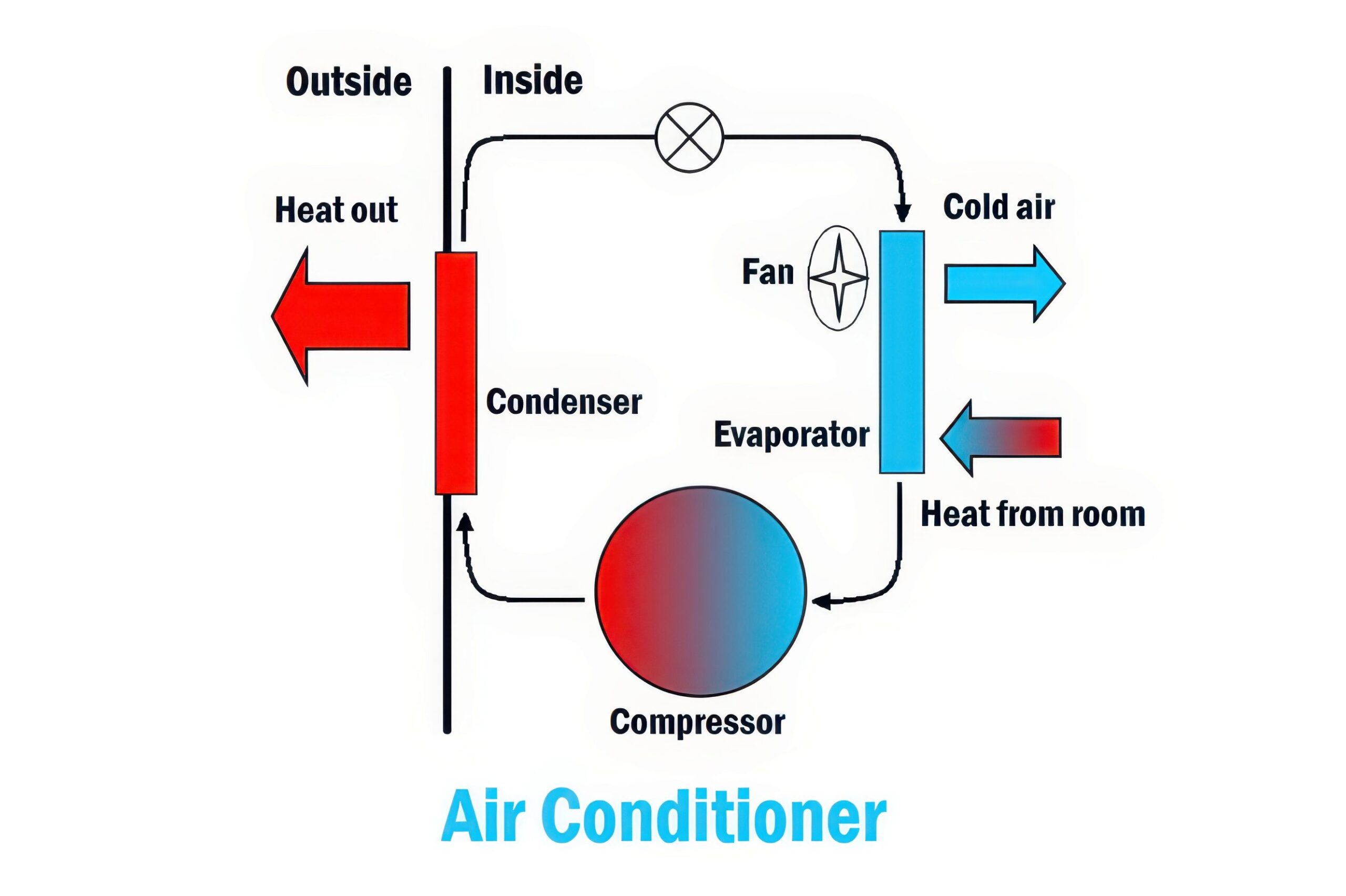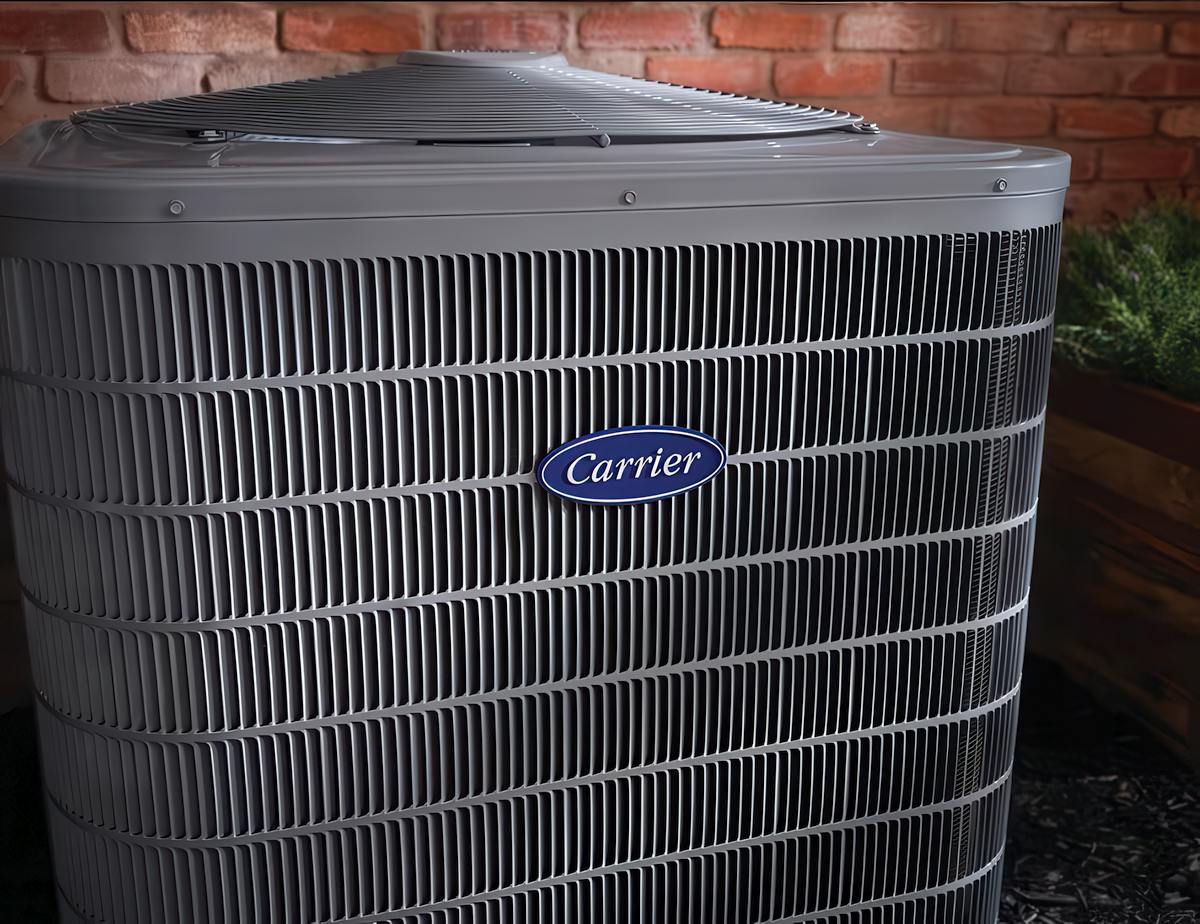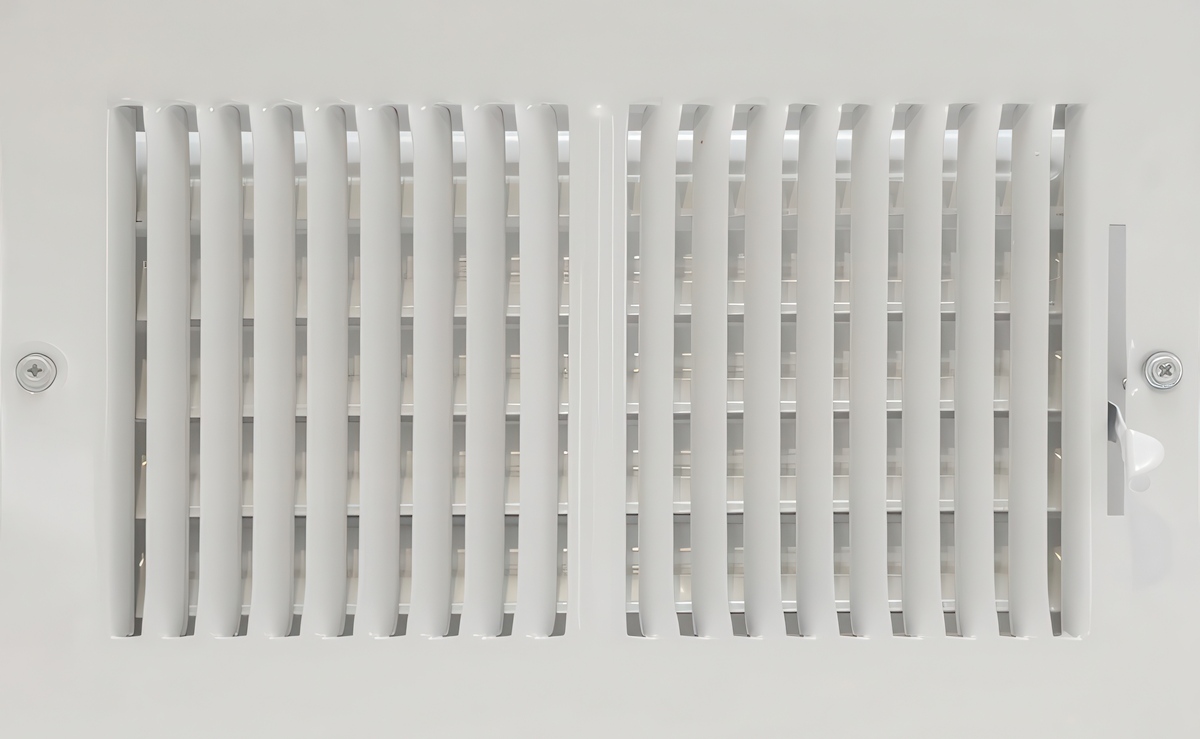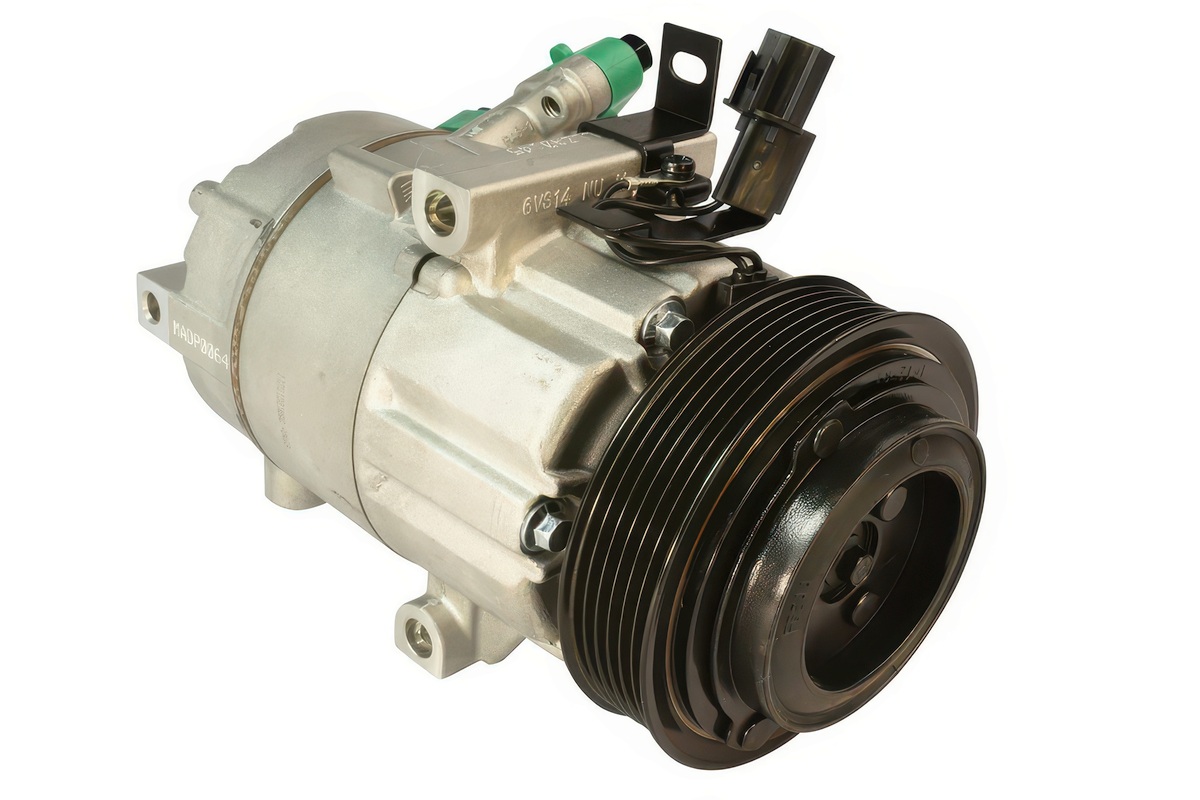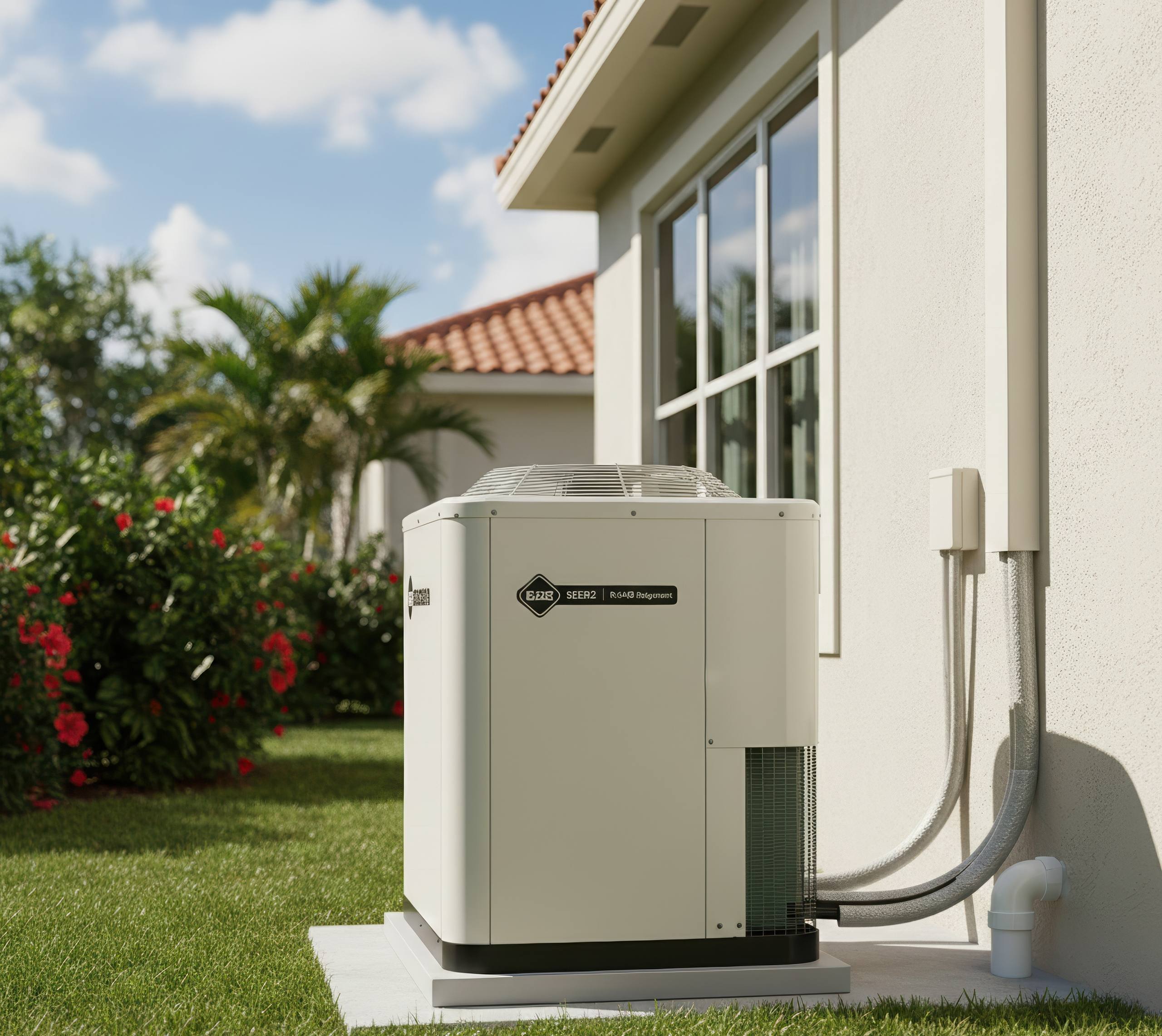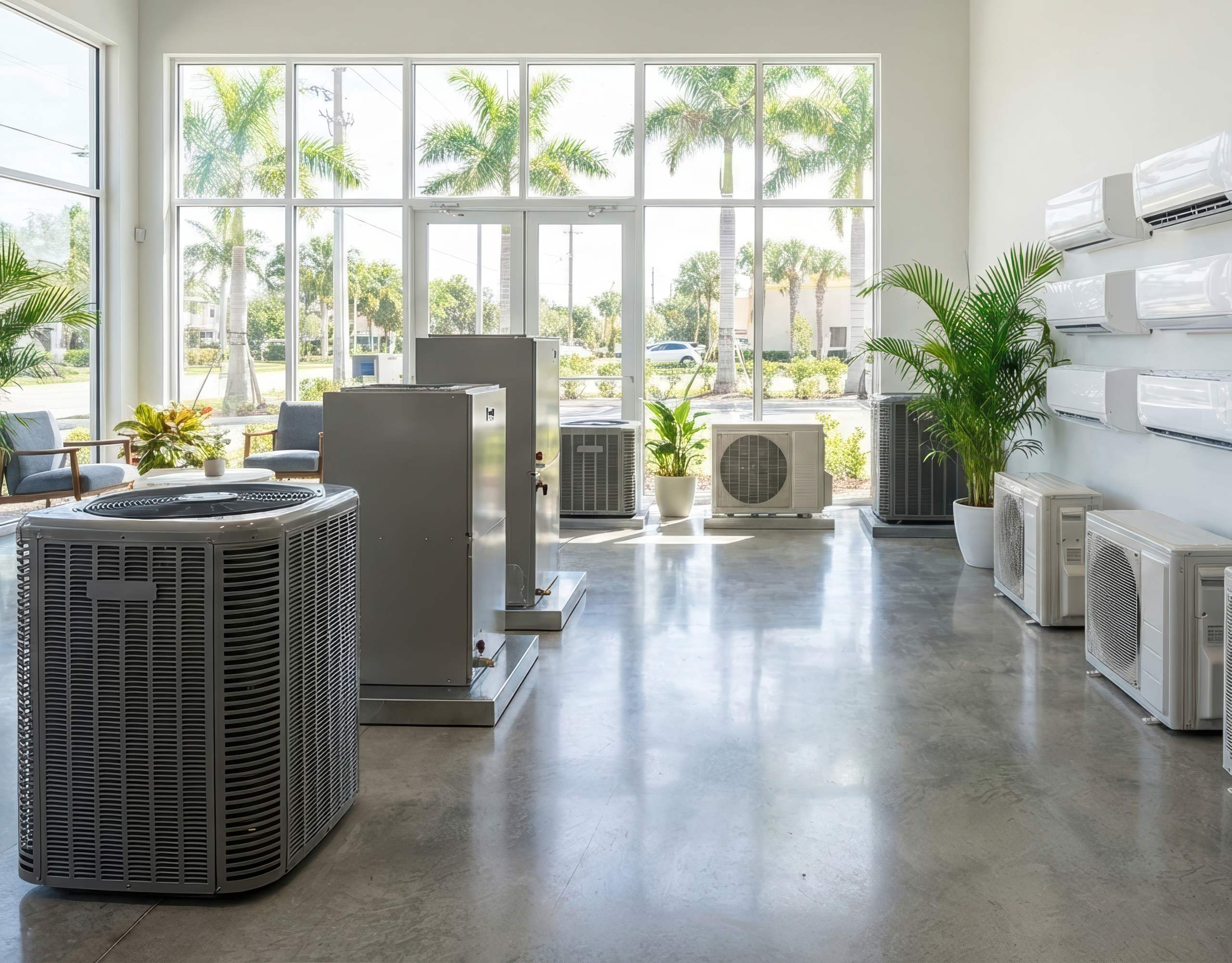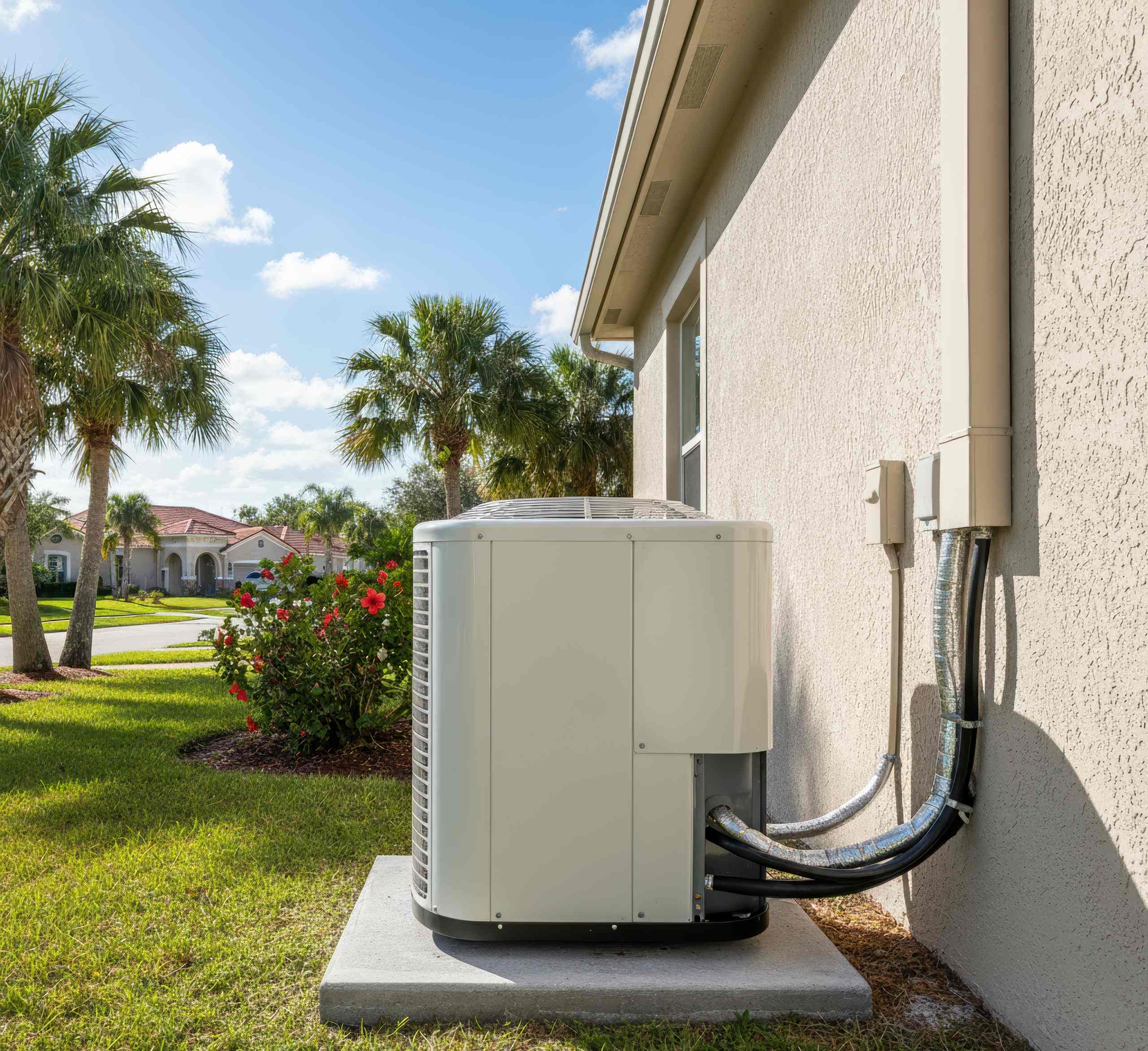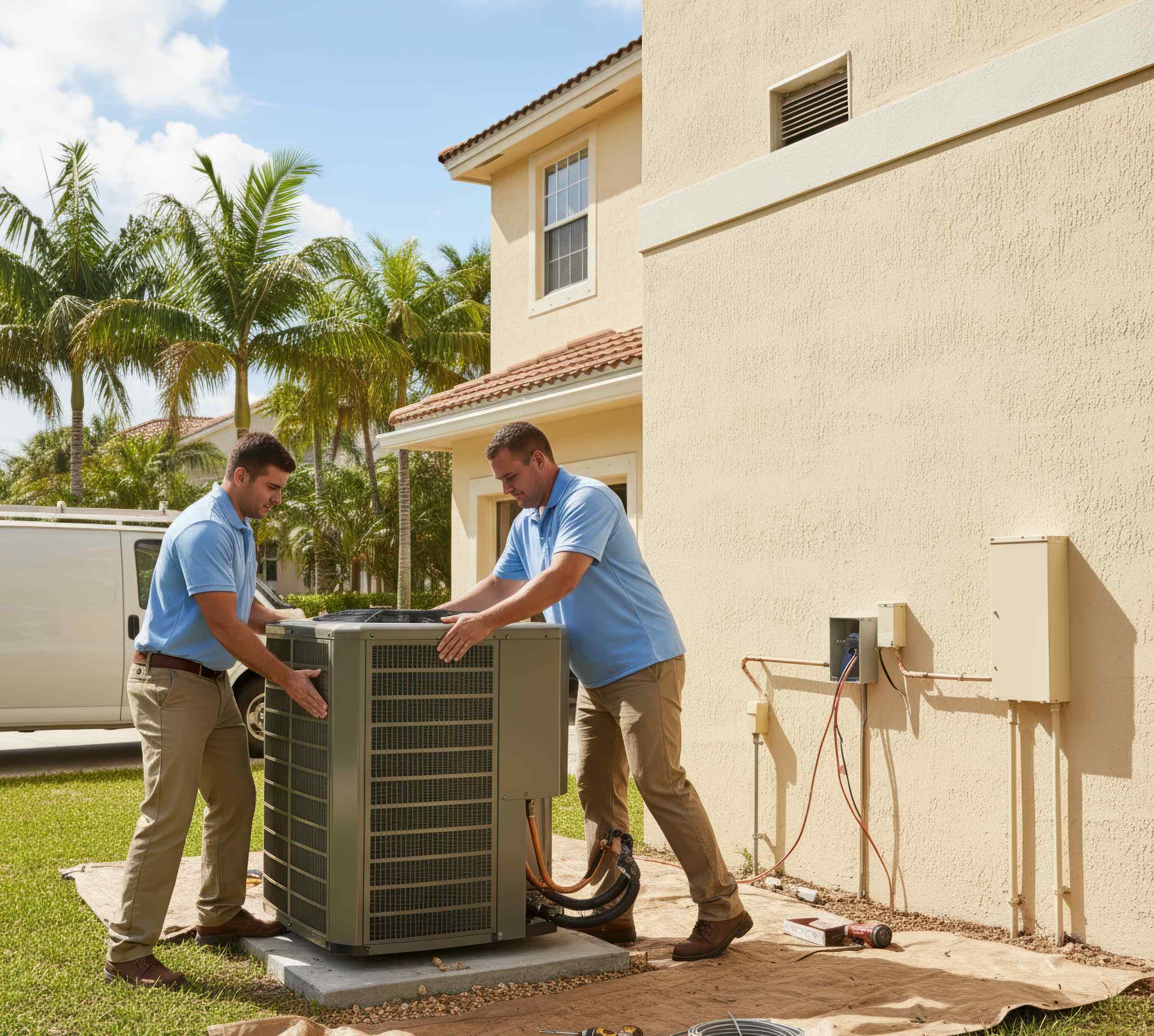You may know within minutes if your AC compressor turns bad and stops working. If it happens in the middle of a Florida summer, the heat and humidity will soon bite.
But there are also more subtle signs that your AC compressor has problems. As a central component of your air conditioning system—and one of the costliest to replace—a failing compressor shouldn’t be ignored. It can lead to emergency AC repairs that no homeowner wants to fork out for.
Fortunately, compressors usually offer a few warning signs before your air conditioning fails completely. So, let’s dive into the main signs that your AC compressor is bad so that problems can be addressed promptly before your home becomes unbearably hot and humid…
HOW CAN YOU DETECT A FAULTY AC COMPRESSOR?

You can usually tell if your home AC compressor is faulty if the system fails to cool your home adequately, no hot air is released by the compressor, the airflow is diminished, the circuit breaker keeps tripping, no compressor “hum” can be heard or strange noises are emitted from the outside unit.
While there could be other reasons for these issues, a faulty AC compressor should be ruled out as it can inflate your monthly electricity bills and is the most expensive AC part to replace.
STAY COOL ALL YEAR ROUND WITH ONE WAY AIR…
The team at One Way Air installs, services, and repairs all types of air conditioning systems in Southwest Florida. Get in touch with us here for a quote or call 239-233-4356 in emergencies.
WHAT DOES AN AC COMPRESSOR DO?
The AC compressor is the “heart” of the air conditioning system, playing a crucial role in the cooling cycle.
Your AC uses refrigerant, a substance with unique properties that make it ideal as a heat transfer medium. The refrigerant allows your AC system to absorb and move heat from your indoor spaces and replace it with cooler air, cycling from gas to liquid and back to gas again.
To do so effectively it needs to be pressurized so that the refrigerant gas will become hotter than the ambient air. When the compressor turns on, it pressurizes the gas so that it absorbs heat, which it then releases outside the home, replacing it with cooled air inside your home.
Your AC cycles like this repeatedly when on, with the compressor playing a central role in the effective and efficient cooling process.
If this process is interrupted by a dead, faulty or malfunctioning compressor, the home can rapidly feel too warm along with several other warning signs that something is wrong…
MAIN SIGNS OF A FAULTY AC COMPRESSOR
Recognizing the warning signs of a faulty AC compressor not only helps prevent the discomforts of a hot and humid home but can also save you money on expensive AC repairs and replacement parts.
Here are the main red flags to be aware of:
No hot air is released outside
It should feel very warm around the fan area of the outside unit as hot air is removed from the home and expelled by the system outside. If the compressor has problems, you may not feel hot air released around the outside unit. The air might be lukewarm or cold if the compressor is not pressurizing the refrigerant gas properly.
Another reason for this problem could be a refrigerant leak, which, in turn, can lead to strain on the compressor. With any such problems, call a professional HVAC technician to troubleshoot as refrigerant should only be handled by licensed professionals.
Strange noises emitted from the outside unit
Stand outside next to the condenser unit while another household member turns the AC system on. With an efficient, fully functional AC system, you should hear the gentle hum of the compressor and the whirr of the fan as they turn on. These signal the start of the cooling cycle.

A strong, vibrating sound or rumbling, popping, banging, clicking, clattering or screeching noises are NOT normal. The problem could be the AC compressor or something else but it shouldn’t be ignored.
Noisy problems with a compressor can be related to electrical/relay switch problems, a loose fan or motor mount or something else. Turn the AC off and get the problem looked at professionally.
Compressor not starting
If the compressor is not starting, the cooling cycle cannot be completed effectively and your home will rapidly feel too warm as the air is simply recycled through the vents without any cooling.
A home that isn’t cooling properly could be due to many reasons—a faulty thermostat, an electrical problem, a lack of refrigerant, etc.—but one of the most serious causes is a faulty compressor.
You should be able to hear the compressor sound over the fan. If, as you troubleshoot the lack of cool air in your home, the outside unit’s fan turns on but you don’t hear the steady hum of the compressor too, there may be an electrical problem—possibly with wiring, the capacitor or the starter relay.
Sometimes, too, an air conditioning unit’s motor is overworked, causing the compressor to overheat. Most modern AC unit motors have a reset button—if it has popped out, you’ll need to wait for the engine to cool down before resetting it.
Reduced airflow
Reduced airflow is a tell-tale early warning sign of a potential problem with the AC compressor or blocked ducting.
If nothing is blocking the ducting but less cold air is generated by the system due to a faulty compressor, the air coming out of your vents will be reduced. You should be able to feel this when you put your hands over the vents to check. The rooms in your home may feel warmer than usual and you’ll need the problem checked by an AC professional.
Breaker keeps tripping
The circuit breaker is an essential safety component of your home, preventing electrical fires by shutting the electricity supply off when a problem is detected. If the circuit breaker trips repeatedly, this is not normal.
A tripping breaker could be due to many reasons, such as too many appliances running. However, if your air conditioning system is tripping while connected to a separate circuit breaker, there may be an electrical short in the AC compressor or the compressor could be overheating due to a buildup of dirt and debris in the condenser coil or filters.
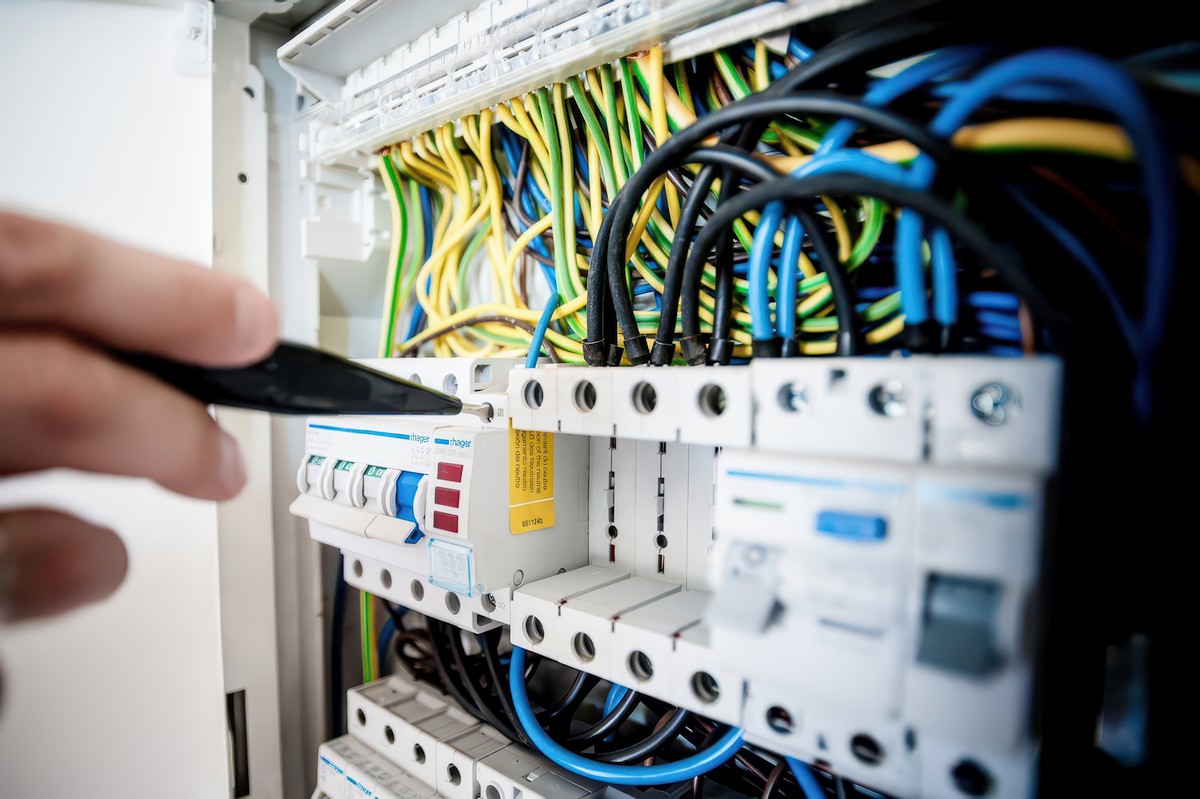
Make sure you know the location of your home’s circuit breaker in case of an electrical problem. You’ll likely find it in the basement, kitchen, hallway or garage. When you open it, each appliance’s circuit should be labeled. Your AC should have a separate circuit breaker. If resetting it to the ON position doesn’t fix the problem or if it keeps tripping repeatedly, get a professional diagnosis and fix.
Lack of cooling or uneven cooling
Another sign of an AC problem is when the air isn’t cooling sufficiently or there are “warm spots” in the home. This may happen gradually so it’s not always easy to identify until you find yourself turning the thermostat down to try to fix the lack of cooling.
If you book regular AC maintenance, these types of problems shouldn’t arise or should be fixed before they get out of hand. The compressor may not be to blame but if there are no thermostat, air filter, refrigerant or electrical problems, the compressor is one of the next culprits to check.

Higher-than-usual electricity bills
Unexplained increases in electricity bills are an unwanted issue that often gets homeowners questioning what’s wrong with their air conditioning.
Air conditioning accounts for up to 40 percent of Floridians’ energy bills even when functioning optimally. Any further rises due to an efficient system will not go unnoticed.
A faulty compressor may need to work harder to cool the home, reducing efficiency and increasing energy usage.

CAN YOU TROUBLESHOOT A FAULTY AC COMPRESSOR?
Some homeowners attempt AC troubleshooting before calling an HVAC professional but they are not qualified to fix problems—which may make the issue worse.
Keeping the area around the outside unit free of vegetation should help preserve the unit. Additionally, most homeowners can try a few simple measures like replacing an air filter, adjusting a thermostat, changing a fuse or resetting the circuit breaker. Anything else should be left to a licensed HVAC technician.
Air conditioners are complex devices that use electricity and refrigerant and should be handled only by licensed professionals. AC costs in Florida are also high and constitute a major investment that most Florida homeowners want to protect by having professionals handle repairs and maintenance.
Besides, different types of AC problems share similar signs and symptoms, so they need to be tested and diagnosed before fixes can be applied.

Ultimately, it’s best to call a licensed technician as soon as possible if you notice any of the above warning signs and none of the simple fixes mentioned work. If the problem is with a bad compressor and you leave it, you may risk having to replace the compressor or the entire unit. Finding and repairing problems early can save money and comfort levels in the home.
WHAT SHOULD A HEALTHY AC COMPRESSOR SOUND LIKE?
If you’re troubleshooting AC problems, learn the sound of a normal functioning compressor—which can best be described as a hum. This sound means that the air conditioner’s cooling cycle has started.
Remember, if you hear loud vibrating or buzzing, screeching, rattling, banging or clattering sounds, these are NOT normal and require investigation.
New AC units run much quieter than older ACs
New compressor technology means that modern AC units run much more silently than their older cousins. The fan is barely audible in some cases, making it more difficult to detect the normal hum—but the sounds that suggest a problem with the compressor should still be obvious.

With fan blade technology also advancing to reduce noise levels, you may not even know that your AC is on until there’s a problem!
WHEN IS IT TIME TO REPLACE A COMPRESSOR?
If your AC problem is due to the compressor, your HVAC technician can advise whether you should repair the compressor, replace it or replace the entire unit. Much depends on the age of your unit and the warranty.
The average lifespan of a compressor is usually around 10-15 years so if your unit is suffering from compressor problems and it’s older than 10 years, it may be advisable to replace your compressor or, in some cases, the entire unit for a more energy-efficient model.
FAQs
How much is a new AC compressor?
In Florida, a new central air conditioner compressor can cost between $1,500 to $2,500 or more, depending on the type and size of the AC unit.
If your AC unit is 10 years old or older, it may pay to replace the unit with a new energy-efficient model rather than perform a costly compressor replacement only for more repairs to be required for other parts over the coming years.
How long do compressors last?
The average lifespan of a compressor is usually around 10-15 years.
Are all AC compressors the same?
There are four or five different types of AC compressors for different types of AC environments.
The type of compressor used in your home AC unit will depend on its age. Most modern ACs have highly efficient, low-noise rotary compressors that operate with only a faint hum. The older your AC unit, the more likely it is to use a reciprocating compressor, which is less efficient and noise-friendly.
Can I run my AC with a bad compressor?
Don’t run your AC with a bad compressor or more problems may result. Call your AC professional to troubleshoot and fix or replace it.
How do you test an AC compressor?
Any potential compressor problems should be professionally checked, tested, and diagnosed before repair or replacement. Don’t try to do this yourself.
Why is my outside AC unit not running?
If your outside AC unit is not running, check this post for the possible reasons.
FIX ALL AC PROBLEMS WITH THE PROS…
Don’t take chances if you think your AC compressor may be struggling. Calling the professionals can prevent costly replacements and an uncomfortable home.As well as providing annual AC tune-ups and regular maintenance, our certified professionals troubleshoot problems with compressors and other AC issues every day, We’ll have you back up and running with an optimized system in no time. Contact One Way Air today.

